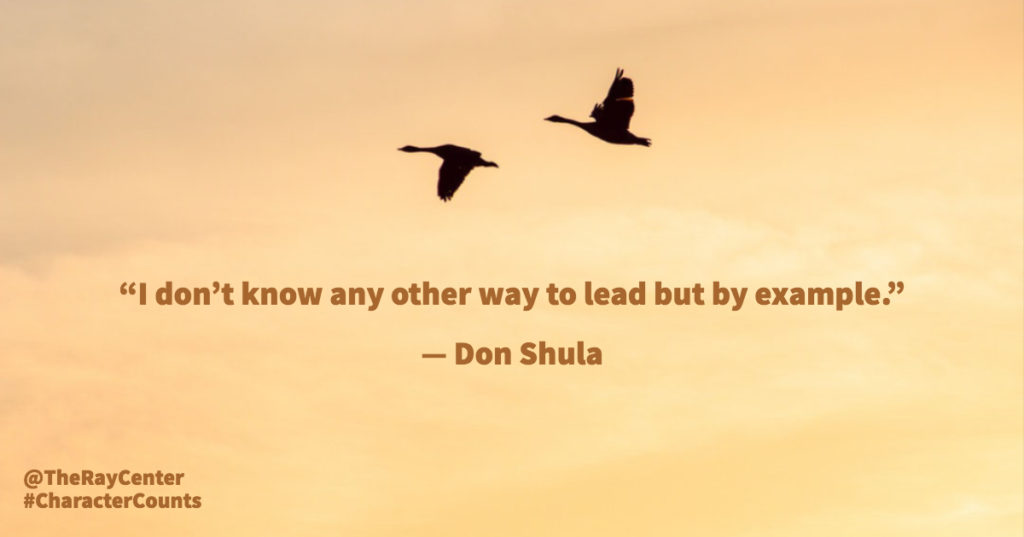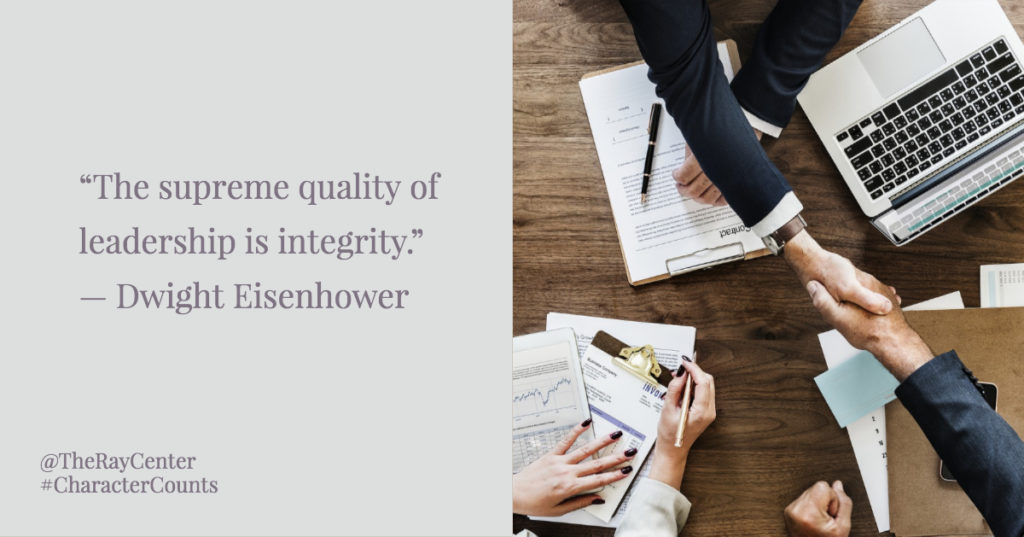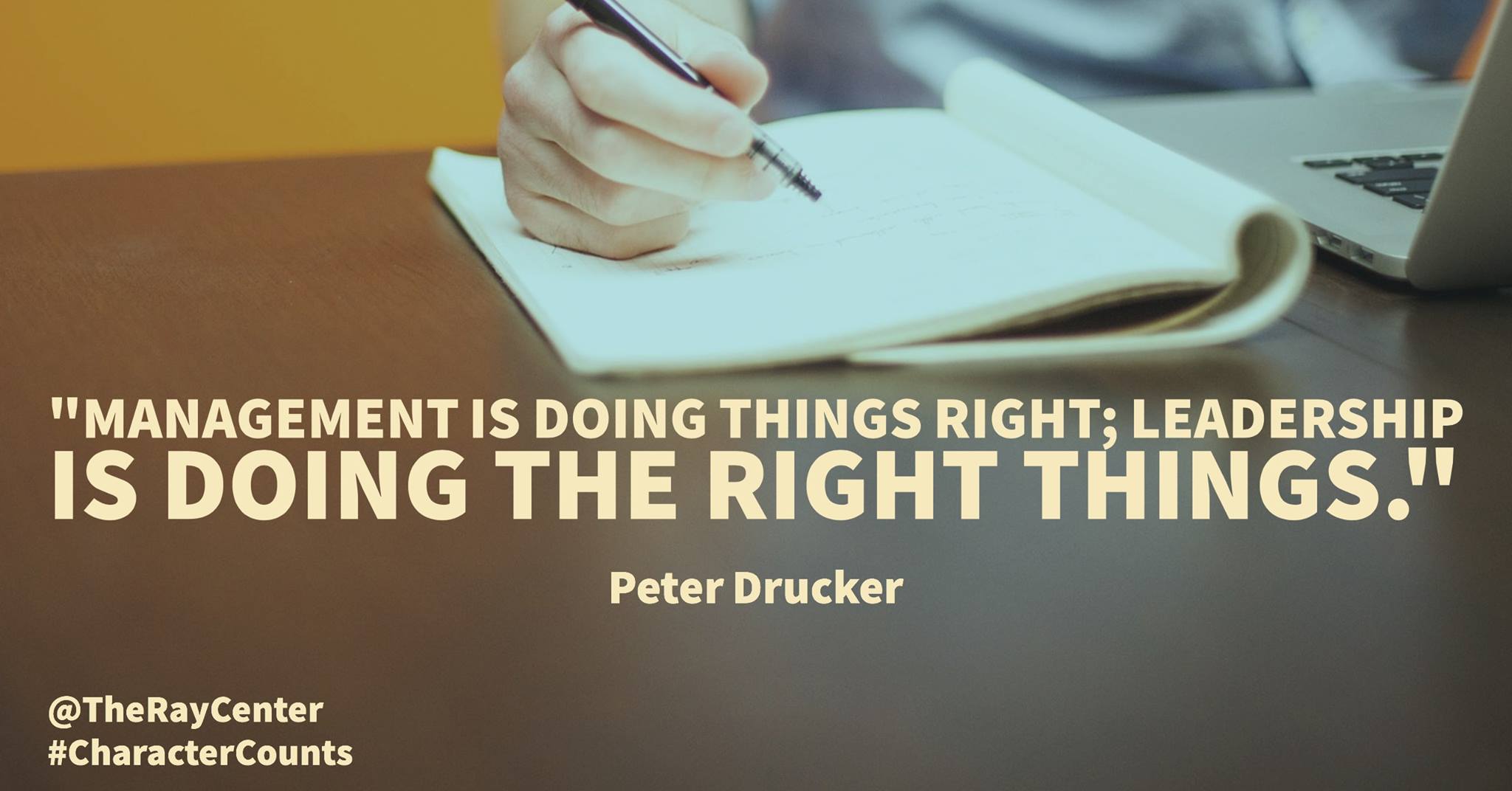Got courage?
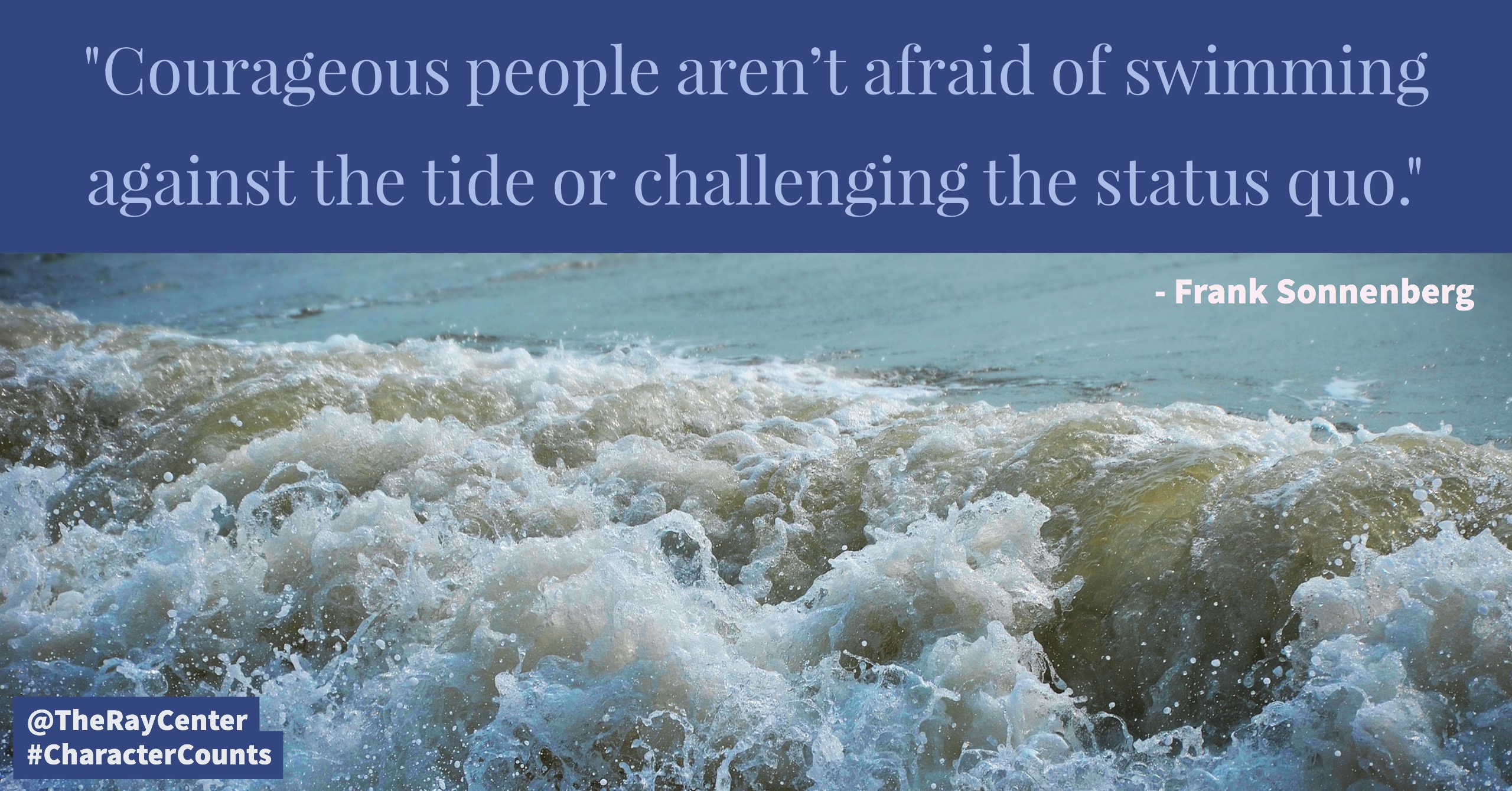 People with courage possess ten shared characteristics. They should remain as guideposts in your journey through life:
People with courage possess ten shared characteristics. They should remain as guideposts in your journey through life:
- Self-confidence. Courageous people believe in themselves. They know who they are and what they stand for.
- Conviction. You always know where courageous people stand. They’re passionate about their beliefs and values and have consistent and predictable behavior.
- Integrity. Courageous people know the difference between right and wrong. They don’t just talk about honor; they live it every day by following the letter, as well as the spirit, of the law. They are trustworthy, objective, fair, and tolerant, and they stand up against injustice — backing their words with action.
- Leadership. Courageous people aren’t deterred by adversity or afraid of what people may think of them.
- Compassion. Courageous people put other people’s needs ahead of their own.
- Objectivity. Courageous people believe that people are willing to make tough decisions if the options are presented to them in an open, honest, and objective manner.
- Strength in adversity. Courageous people aren’t afraid of swimming against the tide or challenging the status quo. They stare adversity in the eye — running toward the problem rather than away from it.
- Change masters. Courageous people step outside their comfort zone to meet the challenges that lie ahead.
- Embrace the unknown. Courageous people follow their intuition. If information required to make a good decision isn’t available, they follow their instincts.
- Action. Courageous people put their money where their mouth is. They know that it’s not enough to talk about doing something — instead, they act.
 Frank is an award-winning author. He has written six books and over 300 articles. Frank was recently named one of “America’s Top 100 Thought Leaders” and one of America’s Most Influential Small Business Experts. Frank has served on several boards and has consulted to some of the largest and most respected companies in the world. Additionally, FrankSonnenbergOnline was named among the “Best 21st Century Leadership Blogs,” among the “Top 100 Socially-Shared Leadership Blogs,” and one of the “Best Inspirational Blogs On the Planet.” Frank’s new book, BookSmart: Hundreds of real-world lessons for success and happiness was released November 2016. © 2017 Frank Sonnenberg. All rights reserved.
Frank is an award-winning author. He has written six books and over 300 articles. Frank was recently named one of “America’s Top 100 Thought Leaders” and one of America’s Most Influential Small Business Experts. Frank has served on several boards and has consulted to some of the largest and most respected companies in the world. Additionally, FrankSonnenbergOnline was named among the “Best 21st Century Leadership Blogs,” among the “Top 100 Socially-Shared Leadership Blogs,” and one of the “Best Inspirational Blogs On the Planet.” Frank’s new book, BookSmart: Hundreds of real-world lessons for success and happiness was released November 2016. © 2017 Frank Sonnenberg. All rights reserved.
A quality of leadership
Management and leadership
How to be a great role model
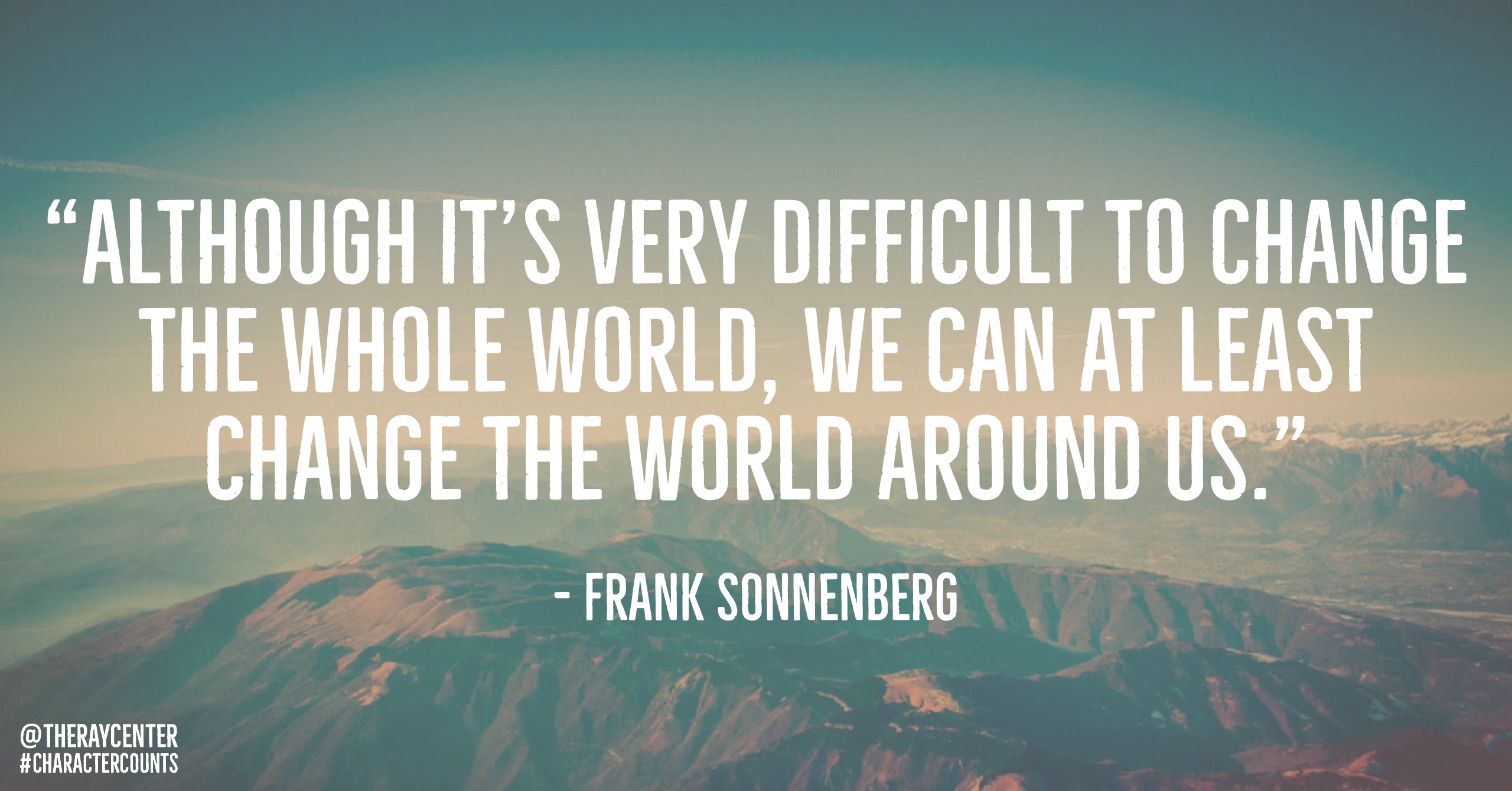
From our guest contributor, Frank Sonnenberg.
Hey, big shot. You don’t have to be a celebrity or a superstar to be a role model. Chances are if you’re a parent, teacher, coach, religious leader, or manager, you’re influencing people every day. Make it positive!
Set the bar high. Have high expectations for others and yourself. Avoid the tendency to adjust the target downward just to accommodate mediocrity.
Inspire others. When you’re a role model, every message you send is critical. For example, people will notice whether or not you value a good education, the relationship that you have with your spouse, how you work under pressure, how you behave during the Little League game, and whether you’re confident enough to admit fault. Don’t wait for the stars to align to demonstrate good behavior. Deliver your message every day in small ways.
Look in the mirror. Look to see if you’re sending the wrong message. Here are some examples of behavior gone awry: cheating has become a substitute for hard work; you have become ruthless to get ahead; drugs are your rewards for success; life is about stuff, not people; relationships are disposable; the only thing that matters is winning.
Stand for something. Good role models are objective and fair. Furthermore, they have the strength of their convictions. They believe what they say and say what they believe. Mark Twain may have said it best, “Action speaks louder than words but not nearly as often.”
Walk the talk. Ensure that your words and actions are consistent.
Integrity matters. Good role models are open, honest, and trustworthy. Make sure to finish what you start and follow through on commitments.
Be respectful. Treat others as you want to be treated.
Believe in yourself. Be confident in who you are and what you represent. But balance that confidence with a dose of humility.
Hold people accountable. Don’t accept bad behavior. Speak up against abuses. If you don’t condemn poor behavior, then you’re a co-conspirator. Life isn’t a spectator sport.
Nobody’s perfect. Accept responsibility for your actions. When you make a mistake, admit fault and show you mean it by taking corrective action.
You’re judged by the company you keep. Surround yourself with people of high character and integrity. They may rub off on you and provide extra encouragement when the stakes are high or the going gets tough.
Your soul is NOT for sale. Listen to your conscience. That’s why you have one.
Every time you point someone in the right direction, you’re not only making a distinctive contribution to his or her life . . . you’re passing the torch to someone who’ll likely pay it forward. Although it’s very difficult to change the whole world, we can at least change the world around us. Your actions today represent the future for our kids. Remember, little footsteps in the sand usually follow larger ones, so watch where you step.
This is adapted from Follow Your Conscience: Make a Difference in Your Life & in the Lives of Others By Frank Sonnenberg © 2014 Frank Sonnenberg. All rights reserved.
 Frank is an award-winning author. He has written six books and over 300 articles. Frank was recently named one of “America’s Top 100 Thought Leaders” and one of America’s Most Influential Small Business Experts. Frank has served on several boards and has consulted to some of the largest and most respected companies in the world. Additionally, FrankSonnenbergOnline was named among the “Best 21st Century Leadership Blogs” and among the “Top 100 Socially-Shared Leadership Blogs.” Frank’s newest book, BOOKSMART: Hundreds of real-world lessons for success and happiness, was released November, 2016 © 2017 Frank Sonnenberg. All rights reserved.
Frank is an award-winning author. He has written six books and over 300 articles. Frank was recently named one of “America’s Top 100 Thought Leaders” and one of America’s Most Influential Small Business Experts. Frank has served on several boards and has consulted to some of the largest and most respected companies in the world. Additionally, FrankSonnenbergOnline was named among the “Best 21st Century Leadership Blogs” and among the “Top 100 Socially-Shared Leadership Blogs.” Frank’s newest book, BOOKSMART: Hundreds of real-world lessons for success and happiness, was released November, 2016 © 2017 Frank Sonnenberg. All rights reserved.
Are you honorable?

From our guest contributor Frank Sonnenberg.
There was a time when keeping your word held special significance. We took great pride in being of good character. Personal integrity was both expected and valued. That was a time when everyone knew each other’s family, and you wouldn’t do anything that would cast a shadow on your family’s good name. It was a time when integrity was instilled in children at a very early age and was viewed as instrumental in achieving success. The truth is, our world may have changed, but the importance of integrity has not. Your word is your bond. While we may not know everyone in our own town, the world is still smaller than you think. Create some bad news and you’ll learn this for yourself.
Every time you give your word, you’re putting your honor on the line. You’re implying that others can place their trust in you because you value integrity and would never let them down. It goes without saying that if you don’t live up to your word, you may end up tarnishing your credibility, damaging your relationships, and defaming your reputation. Most importantly, you’ll be letting yourself down. You must answer to your conscience every minute of every day. As Theodore Roosevelt said, “I care not what others think of what I do, but I care very much about what I think of what I do! That is character!”
But . . . when you operate with complete integrity, what you say will be taken at face value, your intentions will be assumed honorable, and your handshake will be as good as a contract. Most importantly, you can take great pride in the standards that you’ve set for yourself and sleep well at night knowing that your conscience is clear. As for others . . . just when they think they’re fooling the world, they’ll realize that they’re only fooling themselves. Honor matters! Your word is your bond, after all.
 Frank is an award-winning author. He has written six books and over 300 articles. Frank was recently named one of “America’s Top 100 Thought Leaders” and one of America’s Most Influential Small Business Experts. Frank has served on several boards and has consulted to some of the largest and most respected companies in the world. Additionally, FrankSonnenbergOnline was named among the “Best 21st Century Leadership Blogs” and among the “Top 100 Socially-Shared Leadership Blogs.” Frank’s newest book, BOOKSMART: Hundreds of real-world lessons for success and happiness, was released November, 2016 © 2017 Frank Sonnenberg. All rights reserved.
Frank is an award-winning author. He has written six books and over 300 articles. Frank was recently named one of “America’s Top 100 Thought Leaders” and one of America’s Most Influential Small Business Experts. Frank has served on several boards and has consulted to some of the largest and most respected companies in the world. Additionally, FrankSonnenbergOnline was named among the “Best 21st Century Leadership Blogs” and among the “Top 100 Socially-Shared Leadership Blogs.” Frank’s newest book, BOOKSMART: Hundreds of real-world lessons for success and happiness, was released November, 2016 © 2017 Frank Sonnenberg. All rights reserved.
Do you deserve or earn respect?

From our guest contributor, Frank Sonnenberg.
Some people believe that because they’re rich, powerful, or famous, they deserve our respect — regardless of their behavior. Actually, nothing could be further from the truth. Respect must be earned. So, how do you earn the respect of others? It’s easy to respect someone who displays the following qualities:
Authenticity. You are proud of who you are and what you stand for. You’re neither intimidated by someone else’s opinion nor worried about what people think of you. You don’t play games, have a personal “agenda,” or pretend to be someone you’re not. You’re the real deal. Ahh, so refreshing.
Knowledge. You might be very smart, but you don’t give the appearance of being a know-it-all. You’re curious about the world around you, eager to learn, and hungry to improve yourself.
Integrity. You have high ethical values and are true to your beliefs. You follow the spirit of the law, not because you signed an agreement or are afraid of being caught, but because it’s the right thing to do — and that’s good enough reason for you.
Honesty. Your life is an open book because you have nothing to hide. You’re passionate about being straightforward, and you’re happy to deliver good news without sugarcoating the bad. You don’t make promises lightly. In fact, your promise is as binding as a contract.
Fairness. You believe in building long-term relationships rather than settling for short-term gains. You strive for win-win relationships, knowing that if a solution isn’t evenhanded, no one wins.
Tolerance. You are receptive to ideas, beliefs, and cultures other than your own. In the process, you always try to evaluate all sides of an issue rather than forcing your personal opinion on others.
Humility. You are modest about your achievements, comfortable in your own skin, and quietly proud. You shift your focus from taking to giving, from talking about yourself to listening to others, and from hoarding the credit to distributing the praise.
Selflessness. You give to others because you want to, not because you expect anything in return. You believe that your kindness helps to build trust, strengthen relationships, and enhance everyone’s sense of self-worth — not to mention, adding to your karma.
Compassion. You go out of your way to treat others kindly even though you’ve reached the top of your game. You remember your roots and give credit to everyone who helped you along the way. You bring out the best in people in an effort to make everyone feel special, and you help those in need of a break.
Personal responsibility. You take charge of your life rather than feeling that the world owes you something. You set your goals high, make the commitment and sacrifice required to succeed, and accept the consequences of your choices. Of course, if things go south, you don’t play the blame game or fall back on excuses — you remain positive and steadfast.
Quality associations. You are vigilant about the people with whom you surround yourself, knowing that you win or lose respect based on the company that you keep.
This is adapted from Follow Your Conscience: Make a Difference in Your Life & in the Lives of Others By Frank Sonnenberg © 2014 Frank Sonnenberg. All rights reserved.
 Frank is an award-winning author. He has written six books and over 300 articles. Frank was recently named one of “America’s Top 100 Thought Leaders” and one of America’s Most Influential Small Business Experts. Frank has served on several boards and has consulted to some of the largest and most respected companies in the world. Additionally, FrankSonnenbergOnline was named among the “Best 21st Century Leadership Blogs” and among the “Top 100 Socially-Shared Leadership Blogs.” Frank’s newest book, BOOKSMART: Hundreds of real-world lessons for success and happiness, was released November, 2016 © 2017 Frank Sonnenberg. All rights reserved.
Frank is an award-winning author. He has written six books and over 300 articles. Frank was recently named one of “America’s Top 100 Thought Leaders” and one of America’s Most Influential Small Business Experts. Frank has served on several boards and has consulted to some of the largest and most respected companies in the world. Additionally, FrankSonnenbergOnline was named among the “Best 21st Century Leadership Blogs” and among the “Top 100 Socially-Shared Leadership Blogs.” Frank’s newest book, BOOKSMART: Hundreds of real-world lessons for success and happiness, was released November, 2016 © 2017 Frank Sonnenberg. All rights reserved.
6 ways to know that it’s time for a course correction

From our guest contributor, Frank Sonnenberg.
Some people measure success by the wealth they’ve accumulated, the power they’ve attained, or the status they’ve achieved. Yet, even though they’ve reached success beyond their wildest dreams, they still have an empty feeling — something is missing from their life.
In order to fill that void and be completely fulfilled in life, their soul may be searching for something more.
Here are a few scenarios that describe this emptiness:
Lonely at the top. I was obsessed with making it to the top. When I arrived, however, I learned that it wasn’t all it was cracked up to be. I now realize that my continual pursuit of advancement seriously compromised my ability to spend quality time with my family and build meaningful relationships with friends.
Enough is never enough. One of the ways I kept score in life was to compare my toys to my neighbors’ toys. It felt good for a while, but each “high” just didn’t last. I now know better. I realized that if I’m not careful, the game of life can become an obsession — there will always be people with more and less than I have.
Sold my soul. I would have given anything to be a success. I lied, cheated, and sold my soul to the devil. I understand now that although I’ve obtained fame and fortune, people don’t like or respect me. Knowing what I’ve done, I find it hard to live with myself, and others seem to agree.
All work and no play. I was always the first person in the office and the last one to leave. While my business life has been a roaring success, my personal life has been a disaster. I realize there’s got to be more to life. Balance matters, and I must be the one to make it happen.
Pleased everyone except myself. I never made a move without first seeking the approval of my friends and family. They’re happy, but I’m miserable. I now appreciate that my opinion matters too, and counting on others to make up my mind for me is just a cop-out. After all, it’s my life and I own it.
Lived in the future rather than the present. I spent much of my life thinking about what I was going to do tomorrow. Now that I’m older, I’ve come face-to-face with the reality that my days won’t go on forever; I wish I had learned to savor every special moment as it happened.
If any of these scenarios sound familiar to you, it may be time for a course correction.
The purpose of life is a perpetual question that has intrigued mankind since the beginning of human existence. Success in life begins with purpose. When you achieve clarity, you’ll gain a new perspective on your life. When you find your purpose, you’ll feel good about who you are, what you stand for, and where you’re heading. When you discover your purpose, an inner peace will replace the need to seek approval from others. And friends and family will begin to sense a new you: someone who is happy, motivated and self-assured — a person with a mission. People will say that there’s something really special about you. And, they’ll be right! As Robert Byrne, author, once said, ‘The purpose of life is a life of purpose.’ It isn’t too late to start.”
This is an excerpt from Follow Your Conscience by Frank Sonnenberg, © 2017 Frank Sonnenberg. All rights reserved.
 Frank is an award-winning author. He has written six books and over 300 articles. Frank was recently named one of “America’s Top 100 Thought Leaders” and one of America’s Most Influential Small Business Experts. Frank has served on several boards and has consulted to some of the largest and most respected companies in the world. Additionally, FrankSonnenbergOnline was named among the “Best 21st Century Leadership Blogs” and among the “Top 100 Socially-Shared Leadership Blogs.” Frank’s newest book, BOOKSMART: Hundreds of real-world lessons for success and happiness, was released November, 2016 © 2017 Frank Sonnenberg. All rights reserved.
Frank is an award-winning author. He has written six books and over 300 articles. Frank was recently named one of “America’s Top 100 Thought Leaders” and one of America’s Most Influential Small Business Experts. Frank has served on several boards and has consulted to some of the largest and most respected companies in the world. Additionally, FrankSonnenbergOnline was named among the “Best 21st Century Leadership Blogs” and among the “Top 100 Socially-Shared Leadership Blogs.” Frank’s newest book, BOOKSMART: Hundreds of real-world lessons for success and happiness, was released November, 2016 © 2017 Frank Sonnenberg. All rights reserved.
The power to forgive

From our guest contributor, Frank Sonnenberg.
Forgiving doesn’t mean forgetting, nor does it mean approving, what someone did. It just means that you’re letting go of the anger toward that person.
There are several benefits to forgiveness. From a moral imperative, turning your cheek is the right thing to do. Period. Furthermore, it’s a lot healthier and takes a lot less energy to forgive someone than to hold a grudge and remain angry. The fact is, when you’re consumed by bitterness, resentment, and vengeance, you can get swallowed up by your anger. As Lewis B. Smedes, the renowned theologian, said, “To forgive is to set a prisoner free and discover that the prisoner was you.”
Forgiveness does not mean suppressing your feelings or pretending the anger doesn’t exist. Instead, forgiveness requires a conscious decision to release your resentment and thoughts of revenge. It also calls on you to acknowledge and practice the full range of emotions that you possess, such as grief and anger as well as kindness and compassion –– even toward someone who has hurt you deeply.
That’s tough, you say? It’s important to remind yourself that one of the main reasons to show forgiveness is to benefit yourself. Hate is a cancer on one’s soul. It can cause you to feel helpless and frustrated and trap you in a never-ending cycle of anger and resentment. And although you may have every reason to be bitter, you will be compounding the problem by keeping the issue alive. Think of it this way: While they hurt you once, now you’re doing it to yourself.
The truth is, forgiveness reduces the offender’s grip on you and helps you focus on other, positive areas of your life. So follow the wisdom of Robert Brault, the author, who said, “If you can’t forgive and forget, pick one.”
 Frank is an award-winning author. He has written six books and over 300 articles. Frank was recently named one of “America’s Top 100 Thought Leaders” and one of America’s Most Influential Small Business Experts. Frank has served on several boards and has consulted to some of the largest and most respected companies in the world. Additionally, FrankSonnenbergOnline was named among the “Best 21st Century Leadership Blogs” and among the “Top 100 Socially-Shared Leadership Blogs.” Frank’s newest book, BOOKSMART: Hundreds of real-world lessons for success and happiness, was released November, 2016 © 2016 Frank Sonnenberg. All rights reserved.
Frank is an award-winning author. He has written six books and over 300 articles. Frank was recently named one of “America’s Top 100 Thought Leaders” and one of America’s Most Influential Small Business Experts. Frank has served on several boards and has consulted to some of the largest and most respected companies in the world. Additionally, FrankSonnenbergOnline was named among the “Best 21st Century Leadership Blogs” and among the “Top 100 Socially-Shared Leadership Blogs.” Frank’s newest book, BOOKSMART: Hundreds of real-world lessons for success and happiness, was released November, 2016 © 2016 Frank Sonnenberg. All rights reserved.
Ten factors that define courage
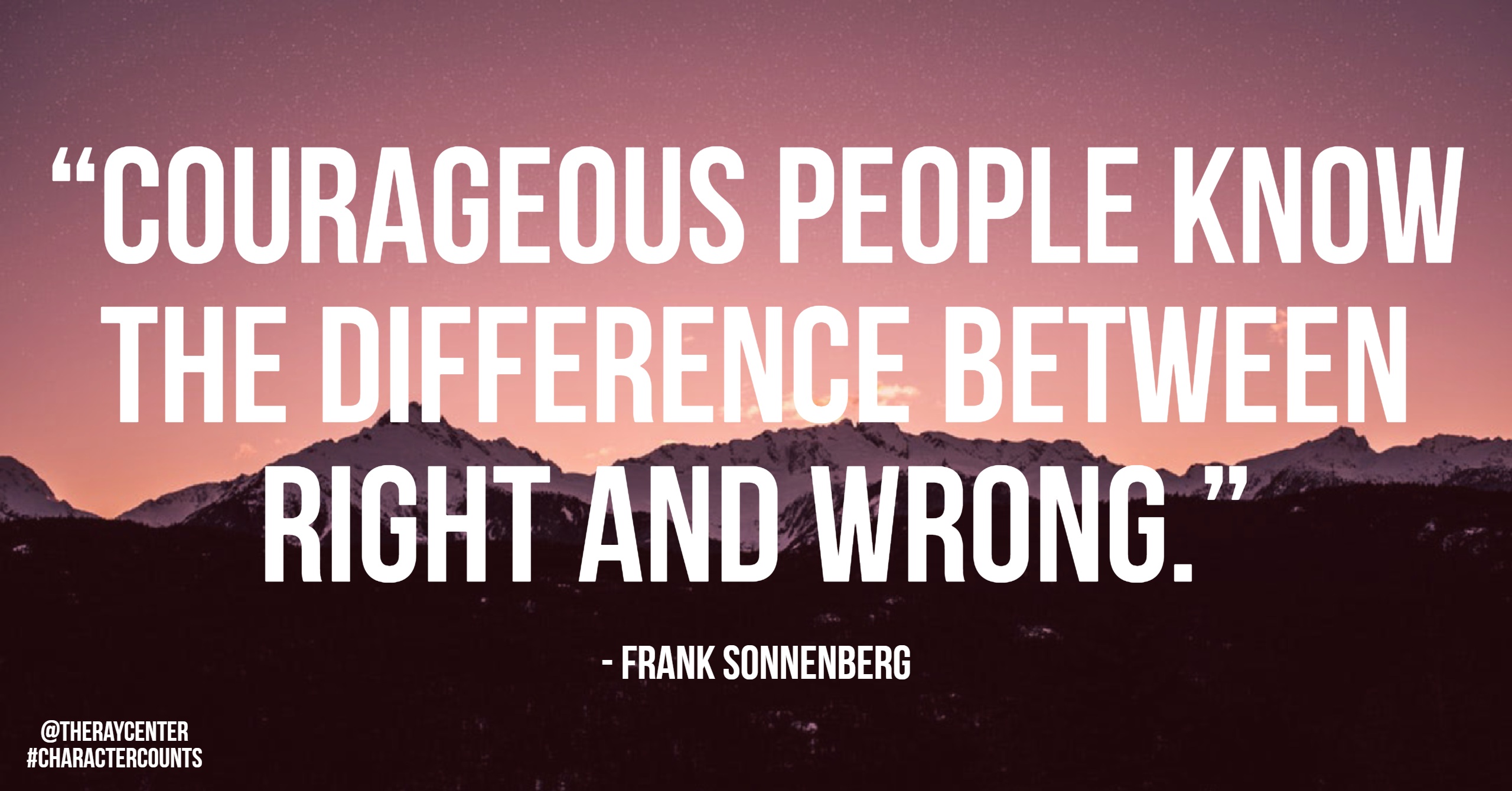
From our guest contributor, Frank Sonnenberg.
People with courage possess ten shared characteristics. They should remain as guideposts in your journey through life:
Self-confidence. Courageous people believe in themselves. They know who they are and what they stand for. They have strong values, recognize their personal capabilities, and are confident in meeting the challenges that lie before them. Courageous people are passionate and purposeful. You can sense courageous people when they walk into a room –– they have a bounce in their step, maintain a positive outlook, and are comfortable in their own skin.
Conviction. You always know where courageous people stand. They’re passionate about their beliefs and values and have consistent and predictable behavior. They don’t blindly follow the crowd, waffle in the face of adversity, or change their opinion unless the change is supported by a strong, factual case.
Integrity. Courageous people know the difference between right and wrong. They don’t just talk about honor; they live it every day by following the letter, as well as the spirit, of the law. They are trustworthy, objective, fair, and tolerant, and they stand up against injustice –– backing their words with action.
Leadership. Courageous people aren’t deterred by adversity or afraid of what people may think of them. Courageous leaders motivate people with personal charisma, expertise, integrity, and respect rather than by using their position or authority as a crutch. Courageous people are tough, but fair. While they may ask others to achieve the “impossible,” they ask of others only what they’re willing to do themselves.
Compassion. Courageous people put other people’s needs ahead of their own. They know that the Captain must go down with the ship and that being selfless helps to gain the respect of friends and colleagues.
Objectivity. Courageous people understand the importance of trust, honesty, and full disclosure while confronting people who hide behind untruths. They believe that people are willing to make tough decisions if the options are presented to them in an open, honest, and objective manner. They also believe that people should admit their mistakes, learn from them, and move on rather than waste precious time playing politics.
Adversity. Courageous people aren’t afraid of swimming against the tide or challenging the status quo. They stare adversity in the eye — running toward the problem rather than away from it. They know that saying “no” to one idea may enable them to say “yes” to another, and that old ways of doing things shouldn’t stand in the way of a better solution.
Change Masters. Courageous people step outside their comfort zone to meet the challenges that lie ahead. They know that change is part of life and that some of the greatest advances have been realized by embracing change.
Embrace the Unknown. Courageous people follow their intuition. If information required to make a good decision isn’t available, they follow their instincts.
Action. Courageous people put their money where their mouth is. They know that it’s not enough to talk about doing something –– instead, they act.
 Frank is an award-winning author. He has written five books and over 300 articles. Frank was recently named one of “America’s Top 100 Thought Leaders” and nominated as one of “America’s Most Influential Small Business Experts.” Frank has served on several boards and has consulted to some of the largest and most respected companies in the world. Additionally, FrankSonnenbergOnline was named among the “Best 21st Century Leadership Blogs.” Frank’s new book, BookSmart: Hundreds of real-world lessons for success and happiness, was released November, 2016. © 2016 Frank Sonnenberg. All rights reserved.
Frank is an award-winning author. He has written five books and over 300 articles. Frank was recently named one of “America’s Top 100 Thought Leaders” and nominated as one of “America’s Most Influential Small Business Experts.” Frank has served on several boards and has consulted to some of the largest and most respected companies in the world. Additionally, FrankSonnenbergOnline was named among the “Best 21st Century Leadership Blogs.” Frank’s new book, BookSmart: Hundreds of real-world lessons for success and happiness, was released November, 2016. © 2016 Frank Sonnenberg. All rights reserved.
